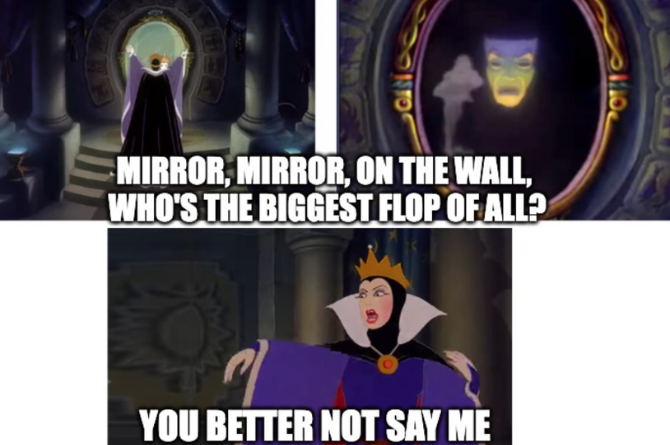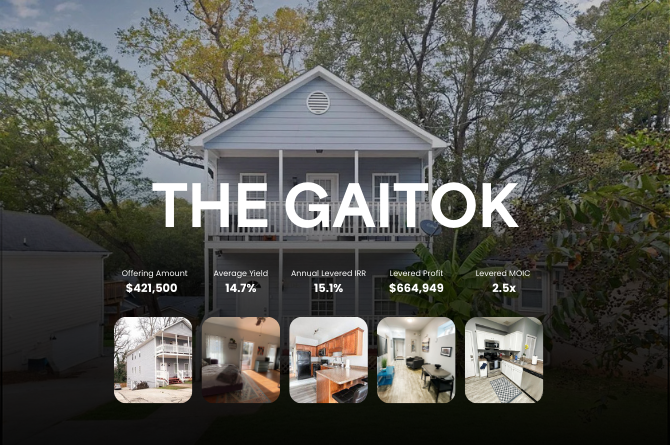April 27, 2025

Good morning. It's been a week of significant transitions, from the passing of a religious leader to the shifting of manufacturing strategies. In times of change, I find it helpful to look for patterns that might give us insight into what's coming next.
This week's newsletter attempts to do just that, examining how companies are adapting to trade pressures and what it means for investors.
Don't worry though, we'll still have some fun along the way.
- Alex Blackwood

👸 Mirror Mirror on the Wall, Who's the Biggest Flop of All? - Disney's live-action Snow White saw a slight box office resurgence this weekend but remains firmly in flop territory. After months of controversy and a reported production budget of $240–270 million, the film has grossed just $194.8 million globally. Industry analysts are pointing to audience fatigue with live-action remakes and pre-release controversies as key factors. Disney's stock barely reacted to the news, suggesting investors had already priced in the disappointment. The real test will be whether this affects Disney's aggressive remake strategy going forward.
🕊️ A Papal Transition - The world mourned this week as Pope Francis passed away at the age of 88. His legacy of humility and reform has left an indelible mark on the Catholic Church and beyond. In a surprising diplomatic development, the funeral arrangements already created an unexpected meeting ground, with Ukrainian President Zelensky and former President Trump meeting today ahead of tomorrow's service. While I won't speculate on the political implications out of respect, it's worth noting how even in passing, the Pope continues to bring opposing sides together. The conclave to elect his successor will begin next week, with Cardinal Tagle of the Philippines among the frontrunners.
🥇 All That Glitters - Gold prices soared to an all-time high of $3,500 per ounce before retreating slightly mid-week. JP Morgan's latest commodities report attributes the surge to a perfect storm of factors: persistent inflation concerns, geopolitical tensions, and strong central bank purchasing. The slight pullback came after profit-taking, but analysts remain bullish. "We're seeing a fundamental reassessment of gold's role in portfolios," noted JP Morgan's head of commodities research. "This isn't just a temporary flight to safety." For those keeping score at home, gold is up over 29% year-to-date, easily outperforming the S&P 500.
_01JSVTXZCEE568S58C2A3SZ9MR.png)
🗣️ Context?
Remember when Saudi Arabia was just about oil? Those days are long gone. From buying up soccer teams to launching LIV Golf, the kingdom has been on a spending spree to diversify its economy. Now, they're making a play for the tech manufacturing sector, and PC makers are more than happy to oblige. It's like watching that friend who suddenly got rich start collecting expensive hobbies, except this hobby might actually pay off.
✈️ High level, what the heck is this?
According to reports this week, major PC manufacturers including Lenovo, HP, and Dell are exploring the possibility of building manufacturing plants in Saudi Arabia. Lenovo has already announced plans for a $2 billion PC and server assembly factory in Riyadh, expected to begin production in 2026. HP and Dell have sent teams to Saudi Arabia to scout potential sites and discuss terms, but have not yet made firm commitments.
The Saudi government is reportedly offering significant incentives, including tax breaks, subsidized land, and infrastructure support. This is part of their broader "Vision 2030" initiative to reduce dependence on oil revenues and transform into a global investment powerhouse.
✅ Why might it work?
1. Saudi Arabia offers a strategic geographic position
Located between Europe, Asia, and Africa, Saudi Arabia provides excellent logistics access to multiple markets. The kingdom has been investing heavily in its ports and transportation infrastructure, making it increasingly viable as a manufacturing hub. For PC makers, this means they can serve not just the US market but potentially Europe and Africa from the same facilities, creating economies of scale that might not be possible elsewhere.
2. The financial incentives are substantial
The Saudi Public Investment Fund (PIF) isn't playing small ball here. They're offering packages that reportedly include not just tax holidays but also subsidized electricity (a major cost in manufacturing), purpose-built industrial zones, and even workforce training programs. For companies facing margin pressure from tariffs, these incentives could mean the difference between profit and loss on certain product lines.
3. It aligns with both Saudi and US strategic interests
The US has been pushing for "friend-shoring" - moving supply chains to allied or friendly nations rather than geopolitical rivals. While Saudi-US relations have had their complications, both countries share an interest in reducing Chinese manufacturing dominance. For Saudi Arabia, success in attracting tech manufacturing would be a major win for Crown Prince Mohammed bin Salman's economic diversification plans, potentially attracting even more foreign investment.
❌ Why might it not work?
1. Saudi Arabia lacks the established ecosystem
Unlike China or Vietnam, Saudi Arabia doesn't have decades of electronics manufacturing experience or the dense network of suppliers that make places like Shenzhen so efficient. Building this ecosystem from scratch is enormously challenging. PC makers might find that while they save on tariffs, they lose on operational efficiency, parts availability, and skilled labor access.
2. Political and human rights concerns remain significant
Western companies face increasing pressure from consumers and shareholders regarding ESG (Environmental, Social, and Governance) factors. Saudi Arabia continues to face criticism for its human rights record, and companies could face backlash for expanding operations there. This could be particularly problematic for consumer-facing brands like Dell and HP, whose customers might be more sensitive to these issues than B2B companies.
3. Tariff policies can change faster than factories can be built
Manufacturing plants represent long-term investments, often planned for 10+ year operational lifespans. Tariff policies, however, can change with each new administration or even within a single term. Companies investing in Saudi Arabia today could find themselves with stranded assets if US-China relations improve or if a future administration takes a different approach to trade policy.
🟰 Conclusion:
This move represents a fascinating intersection of geopolitics, trade policy, and corporate strategy. For Saudi Arabia, attracting major tech manufacturers would be a significant win in their diversification efforts, potentially creating a snowball effect that brings in more technology investment. For PC makers, it's a pragmatic response to tariff pressures that could provide both cost savings and new market access.
The success of these ventures will likely depend on how quickly Saudi Arabia can develop the necessary ecosystem and how stable US trade policy remains. What's clear is that the global manufacturing map is being redrawn, not just by market forces but by political decisions. Companies that can navigate this new landscape effectively will have a significant advantage over those that remain stuck in old patterns.
For investors, this trend suggests looking beyond the obvious players (PC makers themselves) to companies that might benefit from Saudi Arabia's manufacturing push - logistics providers, industrial automation firms, and even Saudi construction companies could see significant upside if this initiative gains momentum.


Our newest PadSplit offering, The Gaitok, is generating quite a buzz, with almost $150k already raised.
It's got the same high-occupancy model, same essential-worker tenant base people have come to love, with projected double-digit yields that echo The Andres and The Victor (some PadSplits now tracking 20%+ annualized returns).
This fully-operating, co-living asset features 100% occupancy, generating $110k+ in post-fee revenue over the last 12 months, and featuring jaw-dropping yields.
Here is an overview on some key numbers:
With every other Atlanta PadSplit now sold-out, the clock is ticking to own a piece of The Gaitok.
P.S. While you're here, why not register for our upcoming webinar this Tuesday, April 29?


As a former sci-fi skeptic, I was late to the Dune party. I finally picked it up after the latest film adaptation, and now I understand why it's considered one of the greatest science fiction novels ever written.Herbert created a universe so detailed and characters so complex that you forget you're reading about a fictional world. The political intrigue, ecological themes, and philosophical questions about power and religion feel startlingly relevant today, despite being written in 1965.
The story follows Paul Atreides, whose family takes control of the desert planet Arrakis, the only source of the most valuable substance in the universe. What follows is part coming-of-age story, part political thriller, and part ecological meditation.
I don't care if you're not into sci-fi, this book transcends the genre. The depth of Herbert's world-building and the resonance of his themes about resource control and political power make this a must-read for anyone interested in how societies function.
⭐ 4.75 / 5.0 in my book (no pun intended)


The world's largest gold bar weighs 300.12 kilograms (661.65 pounds) and was created by Emirates Minting Factory in Dubai. At current gold prices, it would be worth approximately $26 million. It's currently on display in the UAE, and yes, they have very good security.

All 3 are from same source, but if this doesn't teach the art of the deal, I don't know what does.
Written by Alex Blackwood & Thomas Horcel
Receive this weekly recap when you sign up for our platform